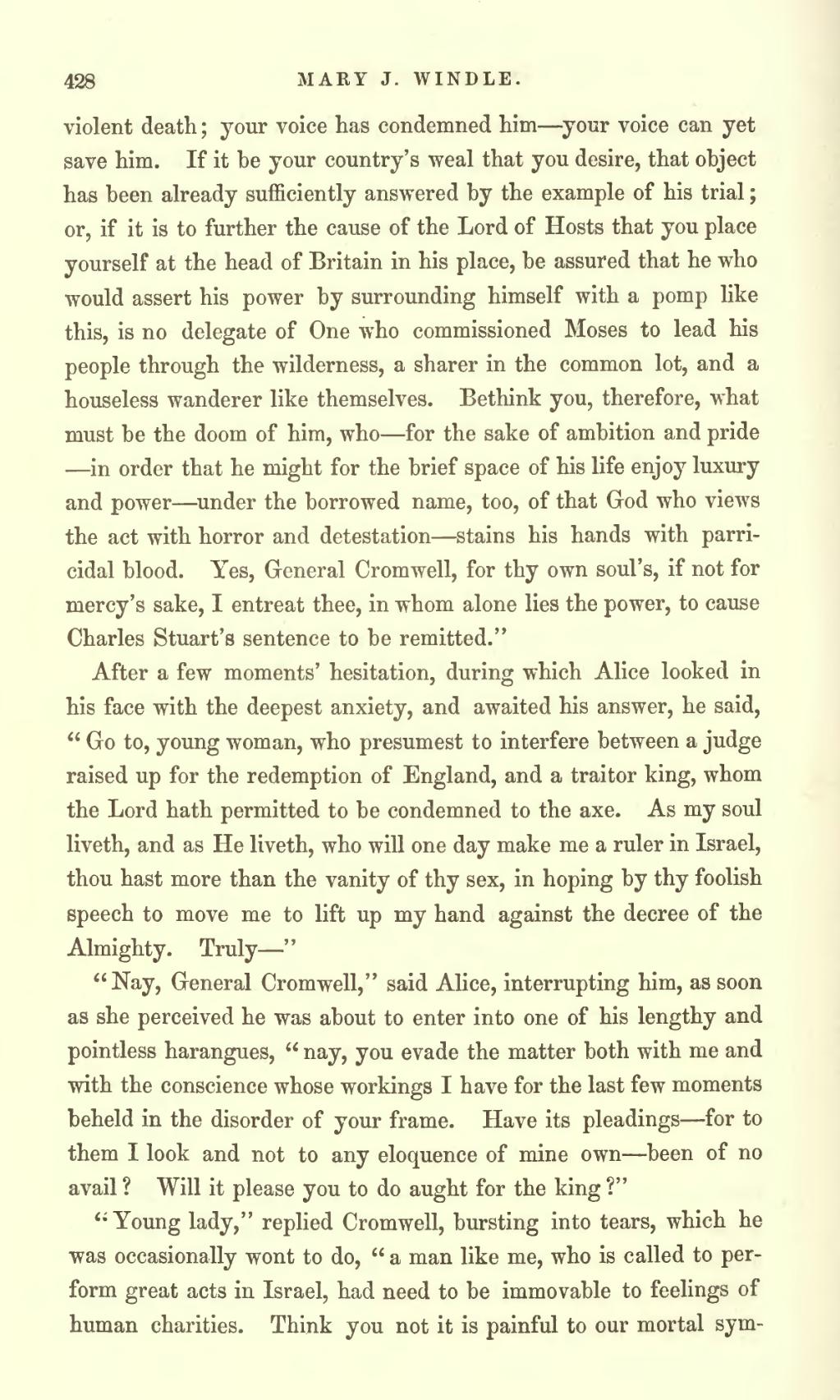violent death; your voice has condemned him—your voice can yet save him. If it be your country’s weal that you desire, that object has been already sufficiently answered by the example of his trial; or, if it is to further the cause of the Lord of Hosts that you place yourself at the head of Britain in his place, be assured that he who would assert his power by surrounding himself with a pomp like this, is no delegate of One who commissioned Moses to lead his people through the wilderness, a sharer in the common lot, and a houseless wanderer like themselves. Bethink you, therefore, what must be the doom of him, who—for the sake of ambition and pride—in order that he might for the brief space of his life enjoy luxury and power—under the borrowed name, too, of that God who views the act with horror and detestation—stains his hands with parricidal blood. Yes, General Cromwell, for thy own soul’s, if not for mercy’s sake, I entreat thee, in whom alone lies the power, to cause Charles Stuart’s sentence to be remitted.”
After a few moments’ hesitation, during which Alice looked in his face with the deepest anxiety, and awaited his answer, he said, “Go to, young woman, who presumest to interfere between a judge raised up for the redemption of England, and a traitor king, whom the Lord hath permitted to be condemned to the axe. As my soul liveth, and as He liveth, who will one day make me a ruler in Israel, thou hast more than the vanity of thy sex, in hoping by thy foolish speech to move me to lift up my hand against the decree of the Almighty. Truly—”
“Nay, General Cromwell,” said Alice, interrupting him, as soon as she perceived he was about to enter into one of his lengthy and pointless harangues, “nay, you evade the matter both with me and with the conscience whose workings I have for the last few moments beheld in the disorder of your frame. Have its pleadings—for to them I look and not to any eloquence of mine own—been of no avail? Will it please you to do aught for the king?”
“Young lady,” replied Cromwell, bursting into tears, which he was occasionally wont to do, “a man like me, who is called to perform great acts in Israel, had need to be immovable to feelings of human charities. Think you not it is painful to our mortal sym-
